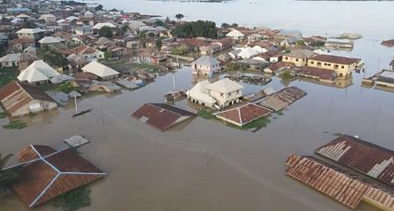The imageries have been terrifying, from North to South. Whole communities under water; roads that have been washed away; floating and bloated corpses; stranded travellers; diversion of traffic to badly maintained roads and a country effectively cut into two, by the force of nature.
The floods are of a biblical proportion and farmlands, homesteads and other economic ventures have been left in ruins.
But it was not as if we have not been forewarned! NIMET consistently said this was going to be a very wet years and consequences were likely to be dire. Nobody seemed to have taken heed; life went on as usual. So when the waters came, the nation was least prepared and millions of our compatriots have had to suffer.
But we are tied directly to nature because we are of nature; therefore, knowledge is imperative to understand the forces of nature and to make the understanding work for us as human bings and a society. This calls for the inculcation of the scientific method in our understanding of phenomena. Clearly, the changing patterns of global weather will continue to impact on whatever we do in our individual and collective lives.
It is therefore more important than hitherto, to be prepared to handle emergencies directly related to global warming and the consequence. What modernity does is to equip individuals and societies with the discipline and knowledge as well as organization to respond to adversity; unfortunately, these are some of the greatest problems which face Nigerian society.
We are not disciplined; we have abandoned search for knowledge for religion and superstition. They eventually catch up with society. If the tragic events of the past few weeks help us to do things better, we would have snatched victory from adversity; but the question to ask is whether we are really willing to do so.


